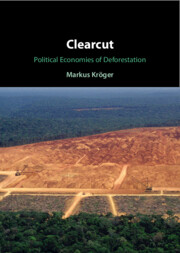Acknowledgments
The research and writing for this book would not have been possible without the extensive assistance given to the project by many people, especially in Brazil, Peru, and Finland. I am extremely grateful and indebted to all of them for their time and help – from discussions with my colleagues, to the numerous people who spent time with me during the hundreds of interviews, and those who helped with the logistics and other aspects that facilitated my fieldwork.
I am especially grateful to Sophia Hagolani-Albov for once again providing excellent help with text editing and managing a team of research assistants to help bring this book over the finish line. I owe many thanks to Saana Hokkanen for the extensive, in-depth, and insightful help in reviewing the literature – a crucial part of this project.
In the field, Claudio Souza offered his friendship and support in the Amazon and, in Brazil, Adriana Margutti helped me in a myriad of ways. I would also like to express thanks to my other colleagues in Brazil, including Biancca Castro, Sergio Sauer, and all the experts to whom I talked and who are cited in the book. I would like to especially thank Cristina Silva, Ivete Bastos, Anselmo Silva, Pablo Carrasco, Paulo Barreto, Igor Silva, Felicio Pontes, Livaldo Sarmento, Manoel Edivaldo Peixe, Caio Vilela, and Mika Mäkeläinen for their help in conducting the research in the Amazon, or for extensive discussions with me on topics related to the book. A special thanks to Bruno Borges for especially intensive transcriptions and other research assistance. For the fieldwork in Peru, Madre de Dios, I would like to thank Luciano Ávila and Matti Salo for the logistical tips and aid. It is also extremely important that I highlight the vital contributions of several people who need to remain anonymous due to treats to their safety or jobs but were still willing and open to discuss important and delicate topics with me.
In Finland, I am grateful to my colleagues in Global Development Studies, especially Barry Gills and Ossi Ollinaho, for many insightful discussions and their reflections. Big thanks also go to the many research assistants who have helped with transcriptions, designing graphics, commenting, and many other aspects – Sanna Komi, Guilherme Varro, Ida Korhonen, Leo Valkama, Tiina Raasakka, Melisa Yasav, and Aleksi Salmela. I would also like to thank the many experts and others with whom I spoke about Finland’s forests.
I would also like to extend my thanks to those who anonymously reviewed my initial proposal for their excellent suggestions, and the Cambridge University Press editors and staff, especially Matt Lloyd and Maya Zakrzewska-Pim, for always giving me wonderful support. Deep appreciation also to Tara Mendola for commenting on and editing the book proposal.
In the process of this book coming together, I received good feedback when I presented the work in progress in many institutions and conferences. I am grateful to the Center for International Forestry Research personnel, especially Amy Duchelle, in Bogor, Indonesia, for inviting me to give a talk on the book project and offering their comments. Thanks also to the International Institute of Social Studies in The Hague, and especially to Jun Borras, Julia Quaedvlieg, and Daniela Calmon for their comments on the project. It was also a pleasure to present the project at the International Studies Association conference and receive comments from Benjamin Cashore and the other panel members. Likewise, thanks go to the commentators at my panel presentation during the 2024 Land Deal Politics Initiative conference in Bogotá.
Last, but certainly not least, it would not have been possible to write this book without the immense help and care from my partner Jenni and our family – thank you for the support and for giving me the time.
Funding from the Research Council of Finland and the Faculty of Social Sciences at the University of Helsinki made it possible for this book to be published open access, making the digital version freely available for anyone to read under a Creative Commons licence.
